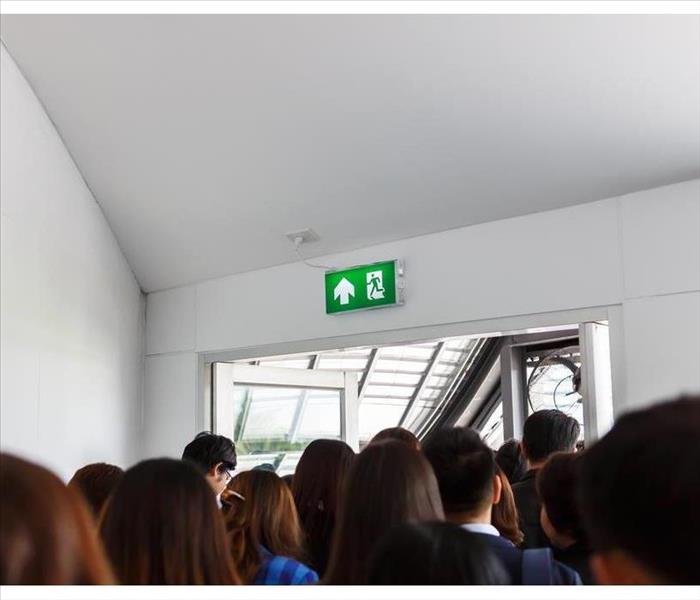Fire Safety Laws That Your Small Business Should Be Following
12/1/2022 (Permalink)
Laws Regarding Fire Safety For Your Small Business
In this article, we will explore some of the fire safety laws that your small business should be following. We'll discuss what OSHA has to say about workplace fire safety, as well as how the NFPA and other governmental agencies enforce their own regulations. We'll also cover some basic rules for keeping your workers safe at home and on the job.
OSHA
When it comes to employee safety, OSHA has provisions for workplace fire safety and safety in the works to protect workers from the dangers of fire. OSHA requires that all workplaces have a written program that includes a fire emergency action plan.
The program should include:
- Training for all employees on how to respond to a workplace fire
- All locations where combustible materials are stored should be inspected by an experienced person who has been trained in inspecting these areas
- A system should be in place to notify authorities if there is a fire or other emergency situation (e.g., 911)
The National Fire Protection Association (NFPA)
The NFPA is the leading fire safety education organization in the United States. On their website, you can find a wealth of information about fire safety laws and regulations that are important for any homeowner or business owner to know.
The NFPA has developed a residential code that has guidelines for residential construction and remodeling of private homes. This code should be followed when constructing or remodeling your home, especially if it's a rental property like an apartment building or hotel room where you live. The code will tell you what types of materials can be used as insulation, how many outlets there need to be per room, as well as other requirements like having smoke alarms installed throughout the house with batteries replaced regularly.
You'll want not only yourself but also anyone else working on site who hasn't taken this course yet done so before attempting any kind of construction activities because failure could result in fines being levied against both groups involved--themselves financially but also professionally due to alleged negligence resulting from a lackadaisical attitude towards safety procedures altogether.
Accessible Exits
You’re responsible for ensuring the safety of your business and its employees. That means complying with all fire safety laws, including making sure that you have adequate exits available in case of fire or a natural disaster.
To meet this requirement, first, make sure there are enough exits for everyone in your building. The number of people who can safely exit the building must be greater than the number who can safely remain inside during an emergency situation.
Next, clearly mark all exits with signs that indicate where they lead and how to reach them—and make sure those signs are visible from anywhere inside your building so that everyone knows how to find their way out if there's ever an emergency situation.
Finally, ensure that all accessible exit routes allow easy passage through them at all times by keeping them clear of obstructions such as furniture or equipment; this includes keeping stairways clear at all times as well.
Locate Fire Extinguishers
You should know where all the extinguishers are located in your building and how to use them. If you see a fire, don't try to put it out yourself—call 911 and tell them where it is (the dispatcher will ask for this information).
If there's a fire that you don't know how to handle, do not use an extinguisher on it! Get everyone away from the area immediately, then call 911 and let them know what happened so they can send firefighters to help if necessary.
The Importance of Fire Safety Laws
Fire safety laws help protect your business from fire damage. You may be wondering how this is possible, but the answer is simple: by following fire safety laws, you will be ensuring that your business (and those who work for it) are safe and sound when it comes to protecting themselves from a potential fire emergency.
Fire safety laws are an important part of any business. They help keep your company and employees safe from fire damage. If you are not familiar with the fire safety laws in your area, it is time to take a look at them now. It's never too late to learn more about how dangerous fires can be if they aren't taken seriously by those who own property or work in certain industries where there is a higher risk for fire hazards.
If your business is impacted by a fire, give SERVPRO of Northwest Vegas a call!





 24/7 Emergency Service
24/7 Emergency Service
